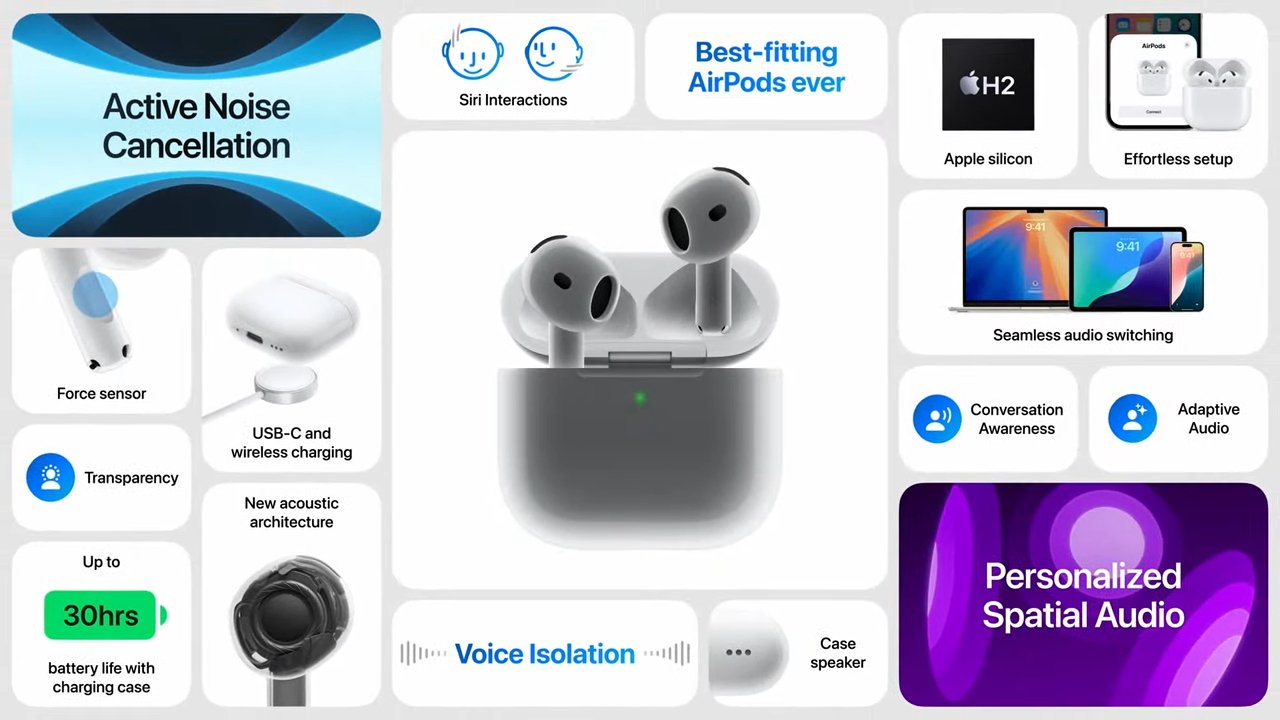Apple has officially announced two new models of AirPods 4 at its “Glowtime” event on Monday, featuring a blend of design elements and features.
The updated low-tier AirPods 4 sport shorter stems and improved sound quality but don’t include the replaceable tips seen in the Pro models. The high-tier AirPods 4 introduces Active Noise Cancellation (ANC), a previously reserved feature for AirPods Pro.
Both AirPods 4 models now include a USB-C charging case, reflecting Apple’s broader move away from Lightning connectors. The higher-end model also has a built-in speaker in its case, allowing users to track their AirPods more easily via Apple’s Find My network.
Apple has confirmed that the AirPods 4 will be powered by the H2 chip, bringing a host of improvements to the wireless earbuds. It offers enhanced performance, including faster pairing, more efficient battery usage, and support for Bluetooth 5.3.
With the H2 chip, users can expect improved sound quality through Personalized Spatial Audio and seamless switching between devices. The new chip also promises a more reliable connection and faster response times when switching between Apple devices
AirPods 4 models come with expanded charging options, including support for USB-C and Apple Watch chargers.
The earbuds feature a tweaked design aimed at providing a more comfortable fit for a wider range of ear shapes. The new design, which combines elements from the AirPods 3 and AirPods Pro, includes shorter stems and improved ergonomics, allowing for a more secure and comfortable experience.
Apple has set the pricing for the new AirPods 4 models, starting at $129 for the standard version and $179 for the model that includes Active Noise Cancellation.






